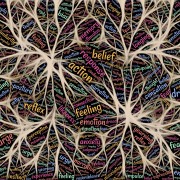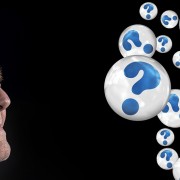Challenging Situations & Dementia Part 2
The changes that happen in neurocognitive disorders can create challenging situations for both the person and those who care for them. Frustrating situations are common and can cause loved ones to wonder why people do what they do. Below are four of the most common situations that can be difficult for caregivers.
Orchard at Brookhaven understands situations such at these and care partners are trained and skilled in supporting people when confronted with unexpected surprises. Orchard chooses to acknowledge persons are doing the best they can with what they have, at any moment, and we believe people are working to problem solve their own needs even if we are not able to always understand their motive.
#1 Wandering
Some people living with a neurocognitive change will wander. The Alzheimer’s Association reports that 6 out of 10 people living with dementia will wander. Programs designed to assist in the monitoring and return of those who wander include MedicAlert® and Safe Return.®
Anyone who has trouble with memory is at risk for becoming lost even if they are in the early stages of a condition that causes dementia. This happens because people can get disoriented and confused about time and/or place.
The area in the brain that helps with wayfinding, navigating direction, and awareness of time (time of day, time of life, time of year) becomes affected by dementia and may no longer work as it used to.
Signs to look for that raise someone’s risk for potentially wandering or becoming lost include:
- Returning from a regular walk or drive later than usual
- Forgetting how to get to familiar places
- Talking about fulfilling former obligations, such as going to work
- Wanting to “go home,” even when they are already at home
- Feelings of restlessness or physically pacing
- Having difficulty locating familiar places inside their home
- Looking for friends or family who live elsewhere
- Acting as if they are doing a hobby or chore, but nothing gets accomplished
- Becoming nervous or anxious in crowded areas, such as shopping malls or restaurants
#2 Paranoia
The medical dictionary defines paranoia as an unfounded or exaggerated distrust of others sometimes reaching delusional proportions. If a person is feeling paranoid, they will constantly suspect the motives of others around them and may believe certain individuals or others in general are, “Out to get them.”
Some probable causes of paranoia due to conditions of dementia include:
- Attempting to fill in “story” for short term memory details that are no longer able to be remembered
- Mistaking information that wasn’t comprehended accurately
- Misidentifying people that I think I know or don’t know
- Creating reasonable and rational conclusions to mistaken information or misidentified people
- Forgetting where items have placed or hidden
- Experiencing a generalized anxiety due to changes in cognitive ability
#3 Shadowing
Often, shadowing appears to be driven by the person’s anxiety and uncertainty. They may feel like their caregiver is the one safe and known aspect of their life; like a physical “life line” or “security blanket.” The minute a caregiver walks into a different room, or goes outside, or shuts a door to use the bathroom for example, the person with dementia may become afraid, unsure and upset.
Things that may help if you are someone’s lifeline:
- Remember you provide a sense of safety and security
- Provide a routine and structure for the day
- Bring in other support people early on so it is normal to have other people around
- Provide meaningful things to do that create give a sense of purpose and importance for a person throughout their day
#4 Sun-downing
Sun-downing is a symptom of many forms of dementia. It is also known as “late-day confusion.” If someone you care for has dementia, confusion and agitation may get worse in the late afternoon and evening often because a person is more tired and the brain is having difficulty with this transitional time of the day.
Reasons for sun-downing can include:
- A feeling that I am supposed to go somewhere or change locations
- A need for increased activity during the day
- Observing or seeing other people leaving or ending work and going home
- A change in diet –eating lighter evening meals can help
- A need to reduce stress I might be experiencing throughout my day
The Orchard’s approach to care considers what is underneath behavioral expressions that can create challenging situations as described above. To find support or learn more about helpful approaches to these and other situations contact the staff of Orchard at Brookhaven.










